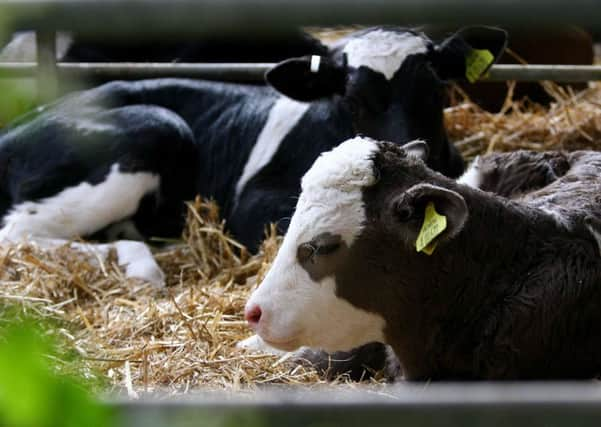Fury over delays to tissue-sampling ear tags for calves
This article contains affiliate links. We may earn a small commission on items purchased through this article, but that does not affect our editorial judgement.


And the lack of any communication regarding the scheme since producers signed up earlier in the year was criticised for creating uncertainty and confusion in the sector.
Calling for an immediate update, NFU Scotland yesterday said that producers also needed to know where they stood regarding other scheme obligations such as the management improvement measures and carbon audits which had to be undertaken.
Advertisement
Hide AdAdvertisement
Hide AdThe union condemned the fact that the issuing of tags was already too late to fit in with normal management practices as the majority of cattle were now housed and through their winter handling and treatment regimes.
And Scottish Conservative MSP Peter Chapman said that the confusion meant that those who had signed up to the scheme did not know whether or not they could sell their stock at the suckled calf sales without breaching the rules.
Tissue tagging 20 per cent of cattle for genetic evaluation was a crucial part of the new scheme rules but no tissue tags have yet been received by scheme applicants.
“We are now into November and it is unacceptable that those who have applied to the new beef efficiency scheme do not have tissue tags on farms,” said Charlie Adam, NFUS livestock committee chairman.
“This is frustrating for the many farmers who have already housed and handled their cattle for the winter, with many of those animals now in overwintering accommodation.”
With an estimated 180,000 beef cows from 2,000 Scottish farmers enrolled in the five-year scheme, Adam said that the Scottish Government should recognise the problem and make tissue tagging voluntary for 2016.
A Scottish Government spokesman said that they were working to rectify the situation and expected to have a timetable by the end of the week.
“This is a new scheme, undertaking complex data analysis and establishing its first genotype sampling regime,” he said, adding that it was not necessary for farmers to hold off from selling their animals.
Advertisement
Hide AdAdvertisement
Hide Ad“We will ensure that the sampling regime accommodates those farmers who have sold their calves and there will be no penalties for those who have.”
